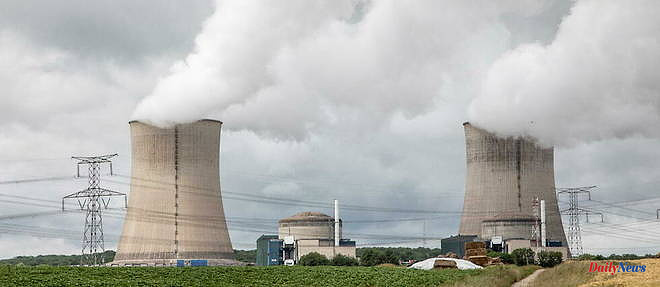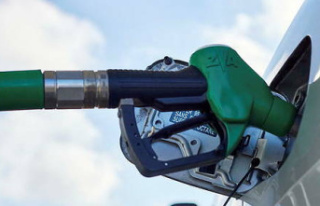The nuclear acceleration bill arrives Monday, March 13 in the National Assembly. The deputies have four days to study the 650 amendments of this text intended to facilitate the construction of the six new EPR reactors promised by Emmanuel Macron by 2035. But the examination is full-bodied by an amendment of the majority on the reform of the nuclear safety, a project much criticized by part of the left-wing opposition.
In a news still agitated by the pension reform, the government is counting on the traditional support of the right for the atom for an adoption without too many difficulties at first reading, after the very broad vote of the Senate at the end of January. This text is "in no way the big night", but "has the merit of putting nuclear power back at the center of the discussions and of our energy mix", underlines the deputy LR Jérôme Nury.
But the opponents of nuclear power, EELV and LFI, intend to rely on two recent events to inflame the debates: the "significant" crack revealed in the piping of a reactor at the Penly power station (Seine-Maritime), and the disappearance announced by the Institute for Radiation Protection and Nuclear Safety (IRSN) that the executive wants to merge into the Nuclear Safety Authority (ASN), the policeman of the power stations.
"It's going to be very hot. Ecologists (the fight against nuclear power) is the fight of their life, "insists a parliamentary source, even though support for nuclear power has clearly gained ground in opinion polls, in the midst of the energy crisis.
The government added the reform of nuclear safety by a simple amendment, adopted by the deputies in committee. But it arouses the ire of the IRSN unions as well as the ASN, the left, and protests even in the majority. The inter-union of the Institute organizes a new day of strike Monday. This "merger" project is "incomprehensible", denounce in a press release the deputies of the left-wing coalition Nupes, who deem "essential to maintain independence between the function of regulator (ASN) and that of expertise (IRSN)".
Among the macronists, the rapporteur Maud Bregeon, former EDF, distinguishes the "legitimate questions" on the IRSN, and the arguments used to "gun down the nuclear sector" by "ideology". She pleads for no longer "having nuclear shame" because it "will allow us to achieve carbon neutrality" and better energy sovereignty, she argues.
Limited to new facilities located on or near existing nuclear sites, the bill aims to simplify administrative procedures so as "not to add a two to three year delay to the construction of a reactor", according to the Minister for Energy Transition, Agnès Pannier-Runacher.
The next two EPRs should be located in Penly, followed by two others in Gravelines (North), according to EDF's plans, with the objective of 2027 for "the first pour of concrete", and "2035-2037" for the placing in service, according to the government.
In committee, the deputies validated a controversial addition from the Senate: the removal of the 50% cap on the share of nuclear energy in the French electricity mix by 2035.
Without an absolute majority in the Assembly, the government strings together two technical texts on energy, turning successively to the left and then the right of the hemicycle: a first on renewables, definitively adopted with the support of the Socialist deputies, and that on the nuclear that LR and the RN look on with a good eye. Before a third more political bill, multi-annual programming, expected at best this summer to set objectives to be achieved for each energy.
This "salami" of energy texts is not to the taste of the oppositions. The anti-nuclear NGO Greenpeace is fighting the bill and has just denounced, in the midst of the war in Ukraine, a French nuclear industry "under Russian control" through the persistent delivery of Russian reprocessed uranium, and imports of natural uranium in from Kazakhstan and Uzbekistan.
France had decided in 2015 to close 14 of its 58 reactors, before a reversal announced by President Emmanuel Macron in favor of a revival. Nuclear power accounts for about 70% of electricity generation usually. Due to corrosion outages and the low availability of the nuclear fleet, this proportion was only 63% in 2022.












